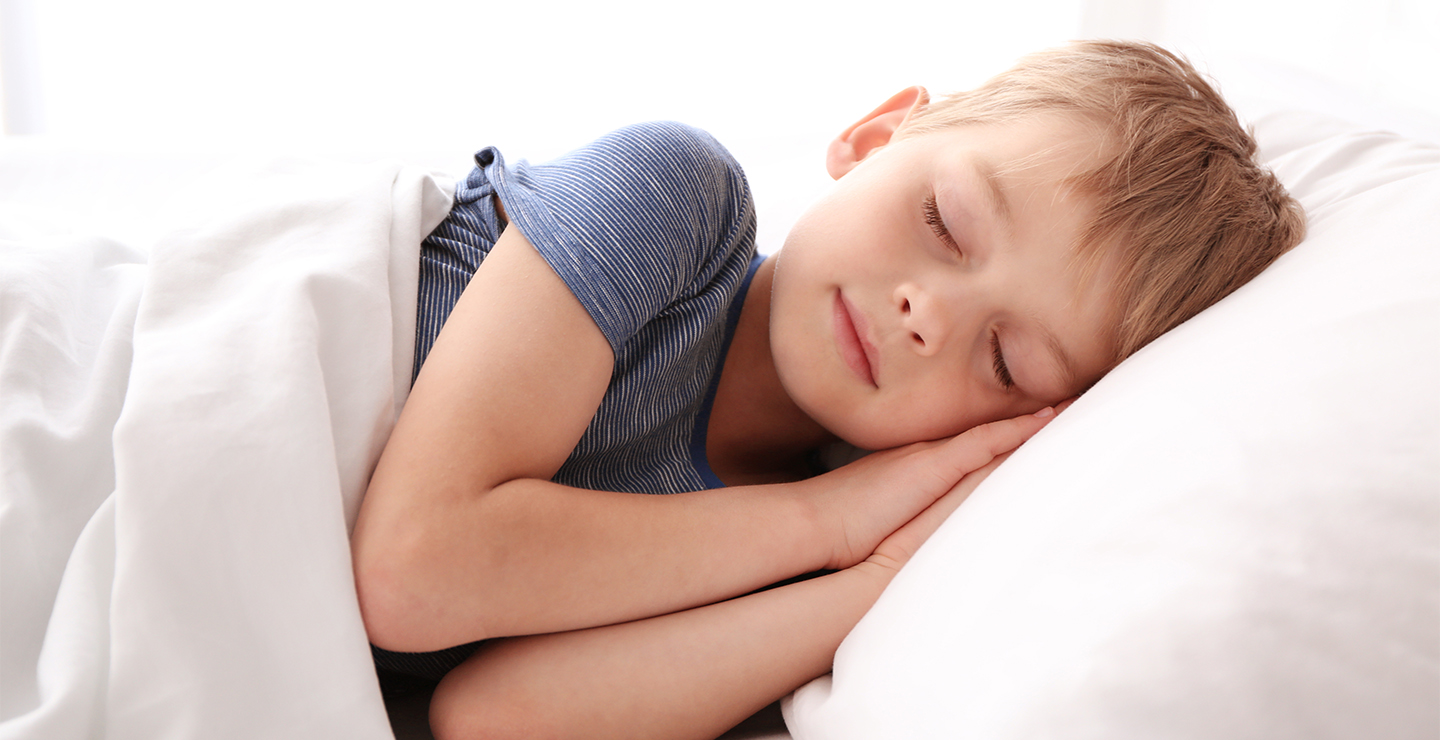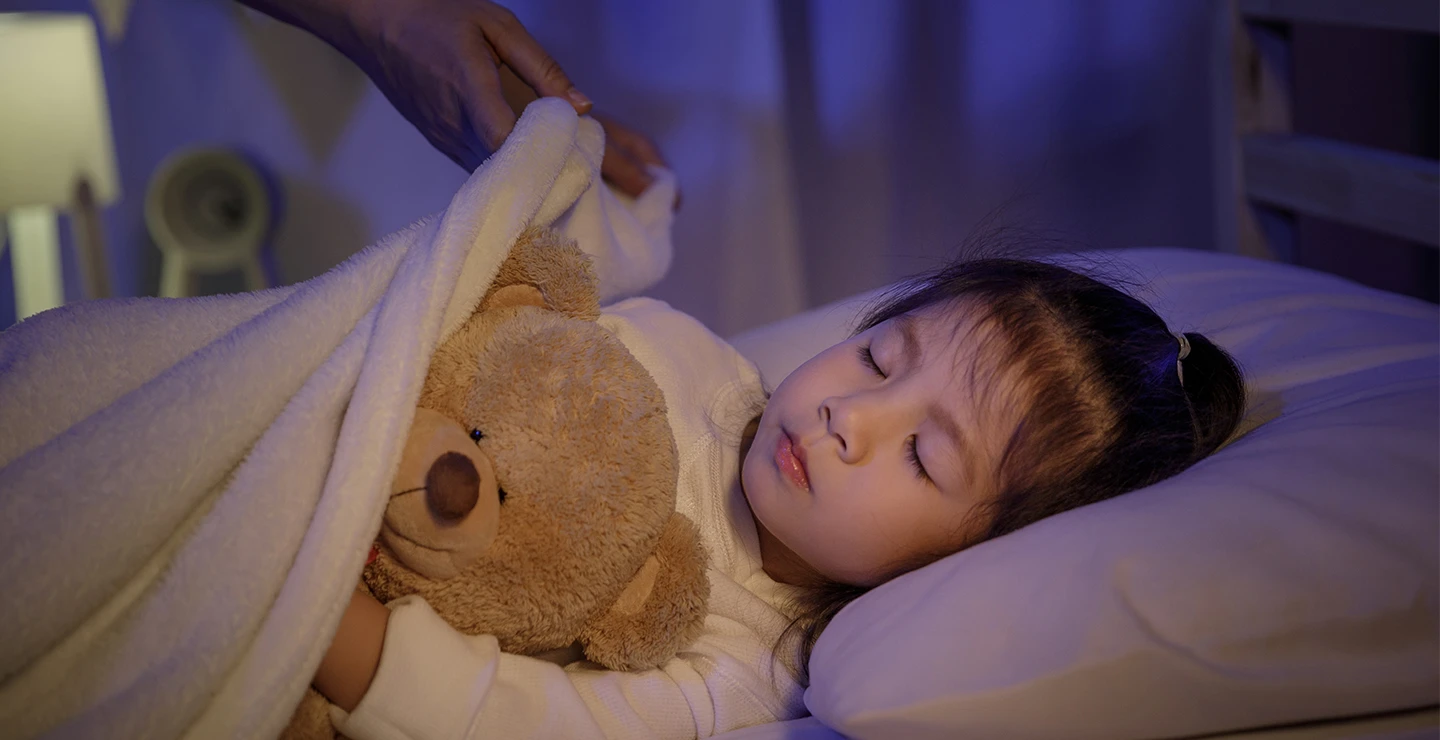Why is sleep so important for kids?
The question crosses the mind of many parents who wonder if their child is getting enough rest amidst the homework, sports, after-school activities, and sleepovers and all the activities that fill up their kids’ days.
Struggles & Remedies


How much sleep do kids need? The question crosses the mind of many parents who wonder if their child is getting enough rest amidst the homework, sports, after-school activities, and sleepovers and all the activities that fill up their kids’ days.
While research points to all people being impacted by a lack of sleep, kids are especially vulnerable to the negative effects of a sleepless night because their bodies and brains are still developing.
To begin, let’s answer how many hours of sleep do kids need?
While research points to all people being impacted by a lack of sleep, kids are especially vulnerable to the negative effects of a sleepless night because their bodies and brains are still developing.
To begin, let’s answer how many hours of sleep do kids need?
- Newborns should get 14-17 hours
- Toddlers should get 11-14 hours
- Preschoolers should get 10-13 hours
- School-aged children should get 9-11 hours
- Teenagers should get 8-10 hours
- Young adults should get 7-9 hours
SO WHY IS IT IMPORTANT THAT YOUR CHILD GETS ENOUGH SLEEP?
“Your child’s body makes HGH (Human Growth Hormone) while he sleeps, which not only helps his body grow but also repairs muscles, tissue, and bone.”
1. Kids grow when they’re asleep
Your child’s body makes HGH (Human Growth Hormone) while he sleeps, which not only helps his body grow but also repairs muscles, tissue, and bone. This hormone helps your child throughout his life, from triggering those rapid growth spurts in early childhood to facilitating development during puberty and beyond. When a child has a severe lack of HGH, common symptoms are that he’ll be shorter than other kids his age, go through puberty later, and his hair and nails will grow slowly.
Along with getting proper nutrition, getting enough sleep is essential for your child to produce growth hormone so his body can grow and function its best, especially during times of rapid change.
Along with getting proper nutrition, getting enough sleep is essential for your child to produce growth hormone so his body can grow and function its best, especially during times of rapid change.
2. Kids learn when they’re asleep
Just like adults need sleep to learn, children also need enough sleep to learn. Have you ever had a tough time sleeping and felt that your mind was “foggy” the next day? Or that you couldn’t remember something simple and had to ask a coworker to repeat the information?
Kids experience the same fogginess and forgetfulness, which can be troubling because their brains are still growing and they’re learning new information at a rapid rate. Even just a few days of sleep deprivation can produce issues because their minds aren’t processing information as efficiently as normal, and their brains will have a harder time moving new information (like multiplication tables or state capitals) from short-term memory to long-term memory.
Kids experience the same fogginess and forgetfulness, which can be troubling because their brains are still growing and they’re learning new information at a rapid rate. Even just a few days of sleep deprivation can produce issues because their minds aren’t processing information as efficiently as normal, and their brains will have a harder time moving new information (like multiplication tables or state capitals) from short-term memory to long-term memory.
3. Kids are less likely to become obese when they’re getting enough sleep
There is increasing evidence (WebMD LINK) that children who don’t get enough sleep are at much greater risk for obesity than children who get enough night time sleep. Research points toi a “a critical window prior to age 5," which is very important for the child to get enough sleep or it can set the child on the path of obesity.
4. Kids are less likely to get sick when they’re getting enough sleep
Getting a full night of restful sleep helps the child’s immune system to kick in, helping the body get rid of the germs it has collected throughout the day. Adult bodies do the same but this sleep time of increased immune response is especially important for children as they tend to be in close contact with other children during school or activities and get more exposed to germs. Also, in the formative years, the child’s immune system is yet to build a tolerance to various bacteria and viruses, as she is getting exposed to many of them for the first time.
NOW LET’S LOOK AT QUICK TIPS TO HELP YOUR CHILD GET GOOD SLEEP.
- Keep a consistent schedule – not just on weekdays, but also on weekends
- Give your child a break day during the week so they’re not always on the go
- If your child (who is 4 years or older) has trouble falling and staying asleep, consider talking to your pediatrician about a melatonin supplement, like PURE Zzzs Kidz Melatonin Gummies. They work naturally with your child’s body to help them fall asleep.*
Remember that consistent and restful sleep is essential for a child’s health and well-being. Browse ZzzQuil’s Children’s Sleep articles to view commonly asked questions, concerns, and tips.
If your child isn’t getting the recommended amount of sleep, or if he or she looks lethargic or foggy throughout the day, don’t hesitate to contact your pediatrician to discuss what you can do to help.




